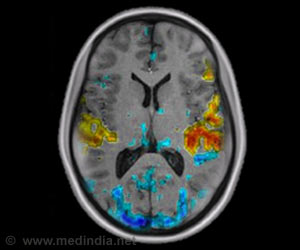
By contrast, TRN cells that control the flow of internal signals behaved in an opposite fashion, firing very little in sleep. This lowered level of activity, Dr. Halassa suspects, may allow memories to form, which is known to occur during sleep. The thalamus has nerve connections to the hippocampus, which plays an important role in learning and memory.
In a second part of the study, Dr. Halassa's group employed a technique called optogenetics, which uses light to turn nerve cells on and off, to test whether altering TRN nerve cell firing affected attention behavior in the mice.
In one experiment, mice learned to associate a visual stimulus with food. Well-rested mice took just a second or two to find food when a stimulus was presented, while sleep-deprived mice took much longer. By turning on TRN cells that specifically controlled the visual part of the thalamus, as would happen normally in sleep, the rested mice behaved like they were sleep deprived. On the other hand, when the researchers turned off these TRN cells, sleep-deprived mice quickly found the food.
"With a flick of a light switch, we seemed able to alter the mental status of the mice, changing the speed at which information can travel in the brain," says Dr. Halassa. Mapping brain circuits and disrupting their pathways will hopefully lead to new treatment targets for a range of neuropsychiatric disorders, he adds.
Advertisement















